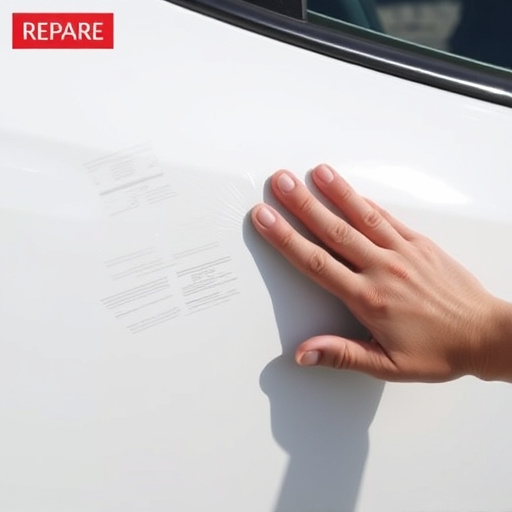A Customer Satisfaction Guarantee (CSG) is a strategic tool for auto body shops to enhance client relationships, manage negative feedback, and differentiate themselves in competitive markets like luxury vehicle repair. By offering clear promises, proactively addressing concerns, and providing swift resolutions, shops can foster loyalty, trust, and positive word-of-mouth recommendations. Measuring success through key metrics validates the CSG's effectiveness in improving customer experience and optimizing processes.
In today’s competitive market, managing negative feedback is paramount for businesses aiming to thrive. A robust Customer Satisfaction Guarantee (CSG) acts as a shield, transforming potential pitfalls into opportunities for growth. This article delves into the core principles of CSG, exploring strategic approaches to mitigate criticism, and providing metrics to assess its impact on feedback management. By understanding these key aspects, businesses can foster customer loyalty and enhance their reputation.
- Understanding Customer Satisfaction Guarantee (CSG) Fundamentals
- Strategies to Effectively Manage Negative Feedback with CSG
- Measuring Success: Evaluating CSG's Impact on Feedback Management
Understanding Customer Satisfaction Guarantee (CSG) Fundamentals

A customer satisfaction guarantee (CSG) is a powerful tool for auto body shops, particularly when it comes to managing negative feedback and fostering client loyalty. At its core, a CSG is a commitment by the shop to ensure that customers are satisfied with the services provided, often backed by promises of repair or compensation if issues arise. This strategy is especially relevant in industries like luxury vehicle repair, where clients expect nothing but the best.
For auto body shops offering services like scratch repair, a well-defined CSG can turn potential complaints into opportunities for building strong relationships. By setting clear standards and procedures for handling dissatisfied customers, shops can proactively manage expectations and demonstrate their commitment to quality workmanship. This approach not only helps in retaining clients but also fosters positive word-of-mouth recommendations, which are invaluable in competitive markets, especially for auto body shops aiming to stand out from the crowd.
Strategies to Effectively Manage Negative Feedback with CSG

When it comes to managing negative feedback, a robust customer satisfaction guarantee (CSG) acts as a powerful tool for turning dissatisfied customers into loyal advocates. The key lies in responding promptly and professionally. A well-defined CSG process should include mechanisms for easy communication channels, allowing clients to voice their concerns without hesitation. Promptly acknowledging the issue and offering a genuine apology sets the tone for resolution.
For instance, in sectors like automotive restoration or collision repair, where vehicle dent repair is a common service, establishing clear guidelines for handling complaints can significantly enhance customer trust. By ensuring swift action, providing transparent updates, and delivering on promises made during the CSG, businesses can mitigate damage to their reputation. Ultimately, effective negative feedback management through a strong CSG fosters a positive brand image and encourages continued customer engagement.
Measuring Success: Evaluating CSG's Impact on Feedback Management

Measuring success is a crucial aspect of any customer satisfaction guarantee (CSG) strategy. It involves evaluating the impact and effectiveness of the CSG program in managing negative feedback. One key metric is the reduction in complaints or return visits due to issues previously resolved. For instance, a car repair shop implementing a robust CSG policy might observe a significant decrease in customers bringing their vehicles back for the same scratch repairs or auto body repairs.
Additionally, positive feedback from satisfied customers and the absence of negative reviews related to the initial issue can serve as strong indicators of success. This data not only demonstrates the effectiveness of the CSG but also highlights the improved customer experience and satisfaction levels. By tracking these metrics, businesses like car repair shops can fine-tune their processes and ensure that their CSG meets the intended objectives.
A robust customer satisfaction guarantee (CSG) serves as a powerful tool for effectively managing negative feedback, fostering customer trust, and ultimately driving business growth. By understanding CSG fundamentals, implementing strategic responses to feedback, and measuring success through impact assessment, businesses can transform negative experiences into positive outcomes. Embracing this approach ensures a harmonious relationship with customers and strengthens brand reputation in today’s competitive market.













